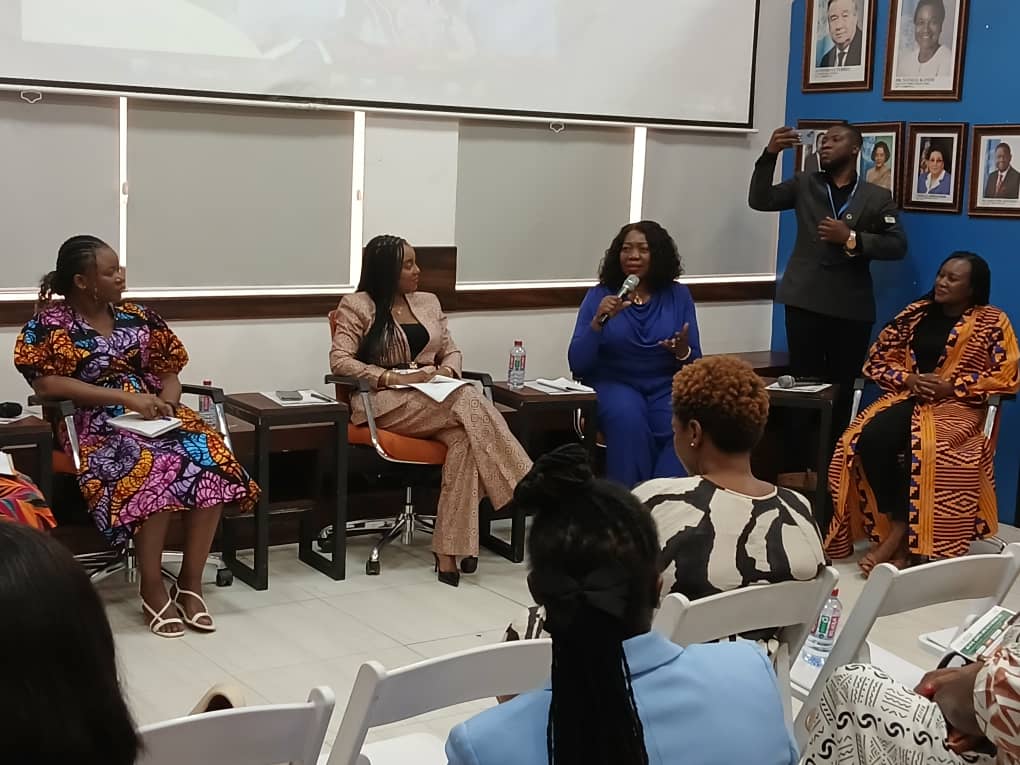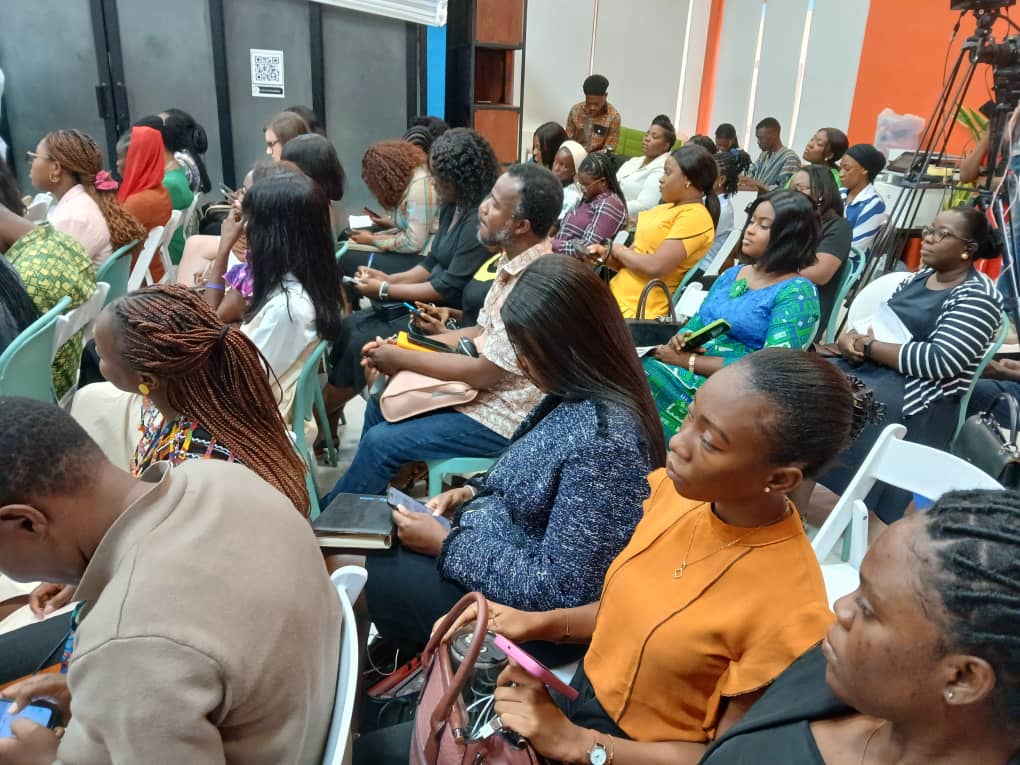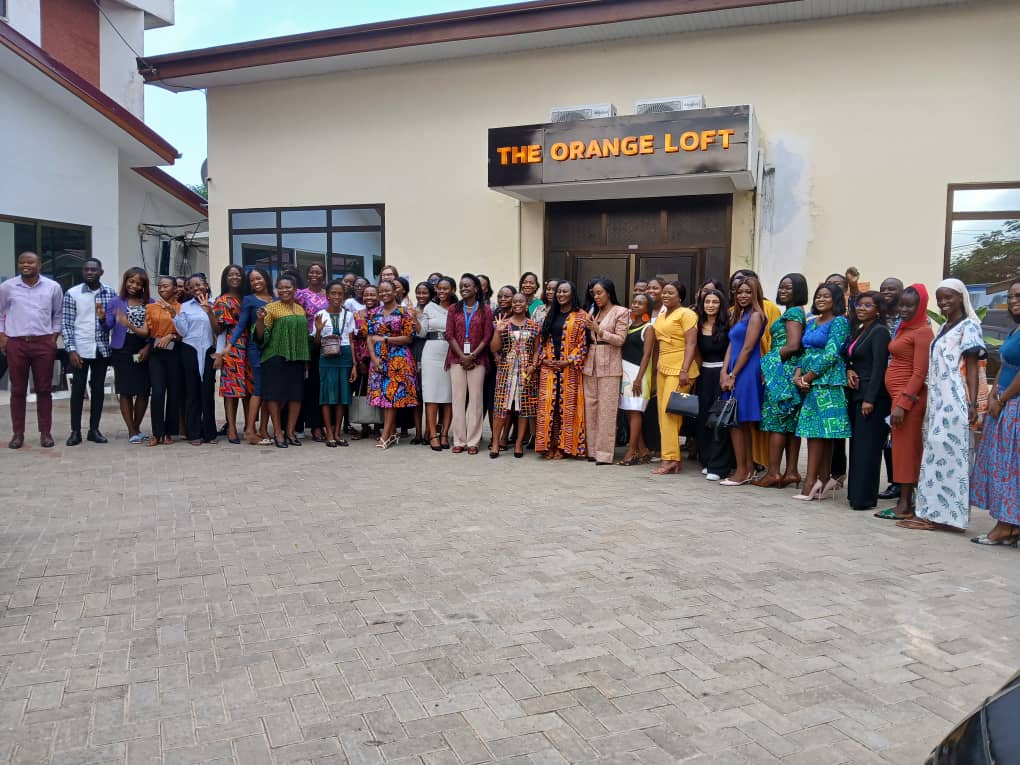By Eunice Hilda A. Mensah
Accra, July 17, GNA – Ms Marina Lamptey, the Head of Diaspora Relations, Ghana Investment Promotion Centre, has advised the youth, especially females to do away with shyness in taking up leadership roles.
“It is quite difficult for many Ghanaian youth especially women to take up leadership roles. They have a lot of potential but are very shy. I want to see diaspora women mentor us in Ghana.
“That is the difference between them and us. They push for something they want; they are not shy and if they need something, they will tell you. But there are others in Ghana here, who will only tap you on the shoulder after a meeting to tell you I didn’t agree with what you were saying. So why didn’t you speak up at the meeting that you disagreed with me?” she said.
Ms Lamptey gave the advice at an AU- Office of the Youth Envoy and UNFPA-organised dialogue on the theme: “Empowering the Next Generation: An Intergenerational Dialogue on African Women’s Leadership in Catalysing the Implementation of Agenda 2063”, in Accra.
Speaking on some of the barriers that hindered a good relationship and investment between the diaspora youth and those of Ghana, she said lack of trust in the system was a key issue.
Others were a lack of policy direction, funding and communication portals for diaspora women to access all forms of information.
GIPC, she said, was, therefore, working on developing a portal to enable the diaspora to research anything about the country even before they paid a visit.
On mentorship and networking as part of the efforts to build up young women for leadership roles, Ms Lamptey said: “The one who needs mentorship should be as polite as possible because nobody owes anyone anything and besides, we also worked our way through.”
Dr Wilfred Ochan, the UNFPA Ghana Country Representative, said the dialogue was going to serve as a critical platform to foster open and honest conversations about opportunities and challenges women and girls faced, ranging from societal expectations to structural barriers that affected their effective participation in leadership and decision making.

“Women are powerful agents of change, yet they continue to be vastly underrepresented in decision-making in politics, businesses, governance and in communities.
“For instance, in Ghana, after the 2016 general elections, Ghana’s Parliament recorded 35 (13 per cent) female MPs and 240 (87 per cent) male MPs out of the 275 Members of Parliament, while the 2020 general elections recorded 40 female MPs (14.5 per cent) and 235 (85.4 per cent) male MPs, in both cases, it is still a far cry from the 30 per cent threshold proposed by the United Nations,” he said.
Dr Ochan said progress in women’s leadership would not happen automatically, as it required intentional public and private sector partnerships to commit to actions in creating an environment that supported and enabled women’s leadership.
“That’s why today’s intergenerational dialogue is one of the efforts to create a safe space for honest, vulnerable conversations about the unique opportunities and challenges African women face in leadership,” he explained.
The dialogue, he said, would highlight the systemic barriers that had held women and girls back for long and most importantly, equip young women with the tools, strategies, and support needed to shatter glass ceilings and redefine what leadership looked like to them.
“We assure you of UNFPA’s continued support and commitment to women, gender equality and our continuous cultural relationship with the Ministry in Ghana and the AU,” he said.
Ms Chido Mpemba, AU Special Envoy on Youth, admonished young women to prove themselves worthy of a platform or role.
“The world is fast-paced so women need to catch up as there are a lot of expectations now. As a leader, don’t be afraid that people around you might know more than you or have a higher qualification than you. They are the ones who will guide you and support your overall dreams.
“Be aggressive for leadership positions but make sure your aggression is a strategic one,” she advised.

Mrs Hilda Suka-Mafudze, the AU Ambassador to the US, urged the youth, especially women to protect their names and develop a love for reading comprehensively to broaden their knowledge.
“You need to take ownership, protect your name in all you do and read widely everything you find. It doesn’t matter if it doesn’t have a title,” she said.
She asked young women to make good use of their mobile phones and the internet to do research on leadership and learn from good examples.
“You cannot be standing alone without learning from someone. Get networks and learn from them. Remember your network is your net worth. Get yourselves up there and be confident,” she advised.

GNA